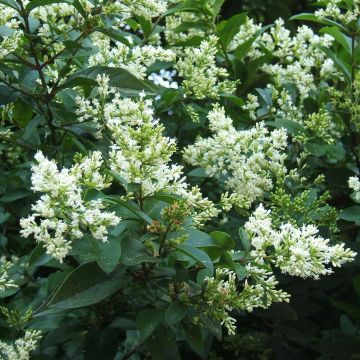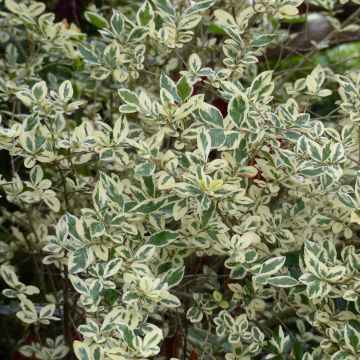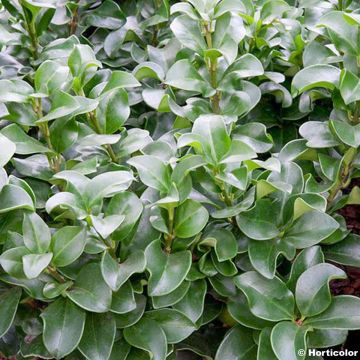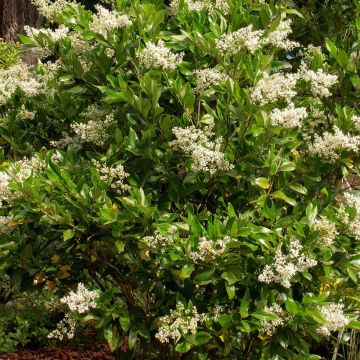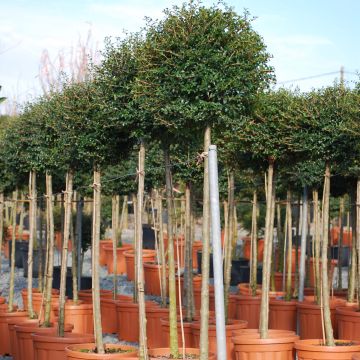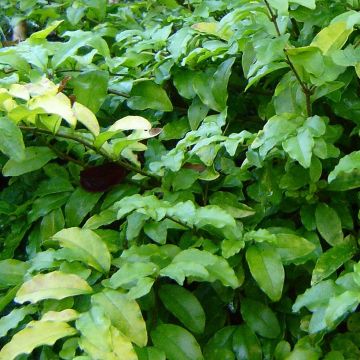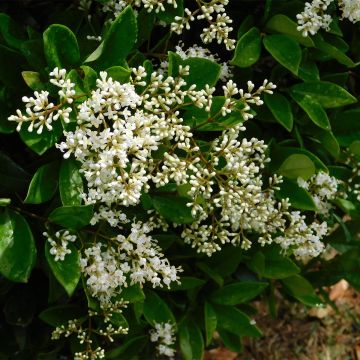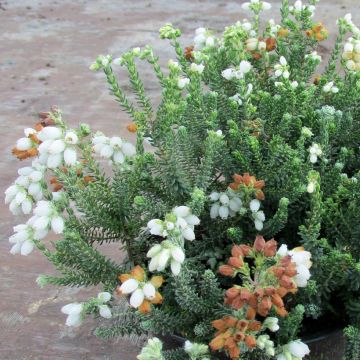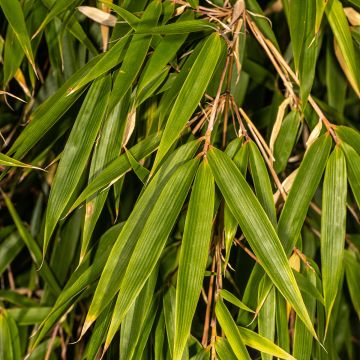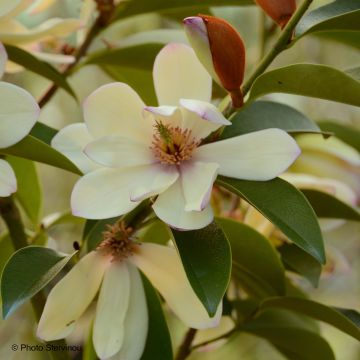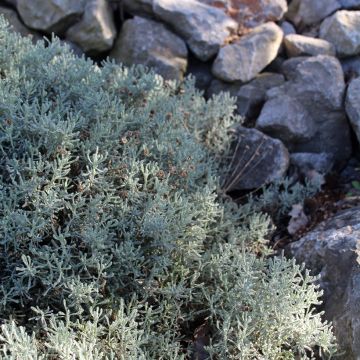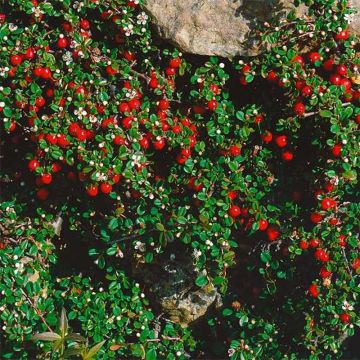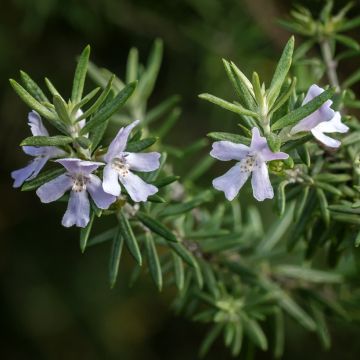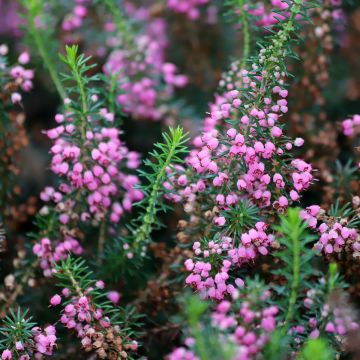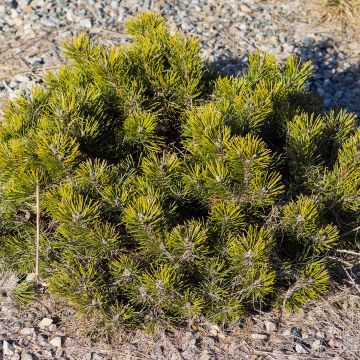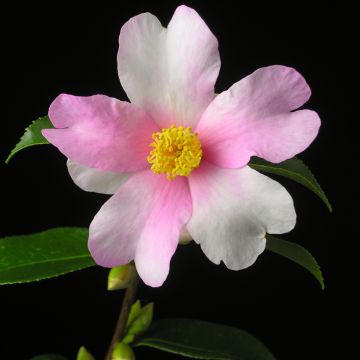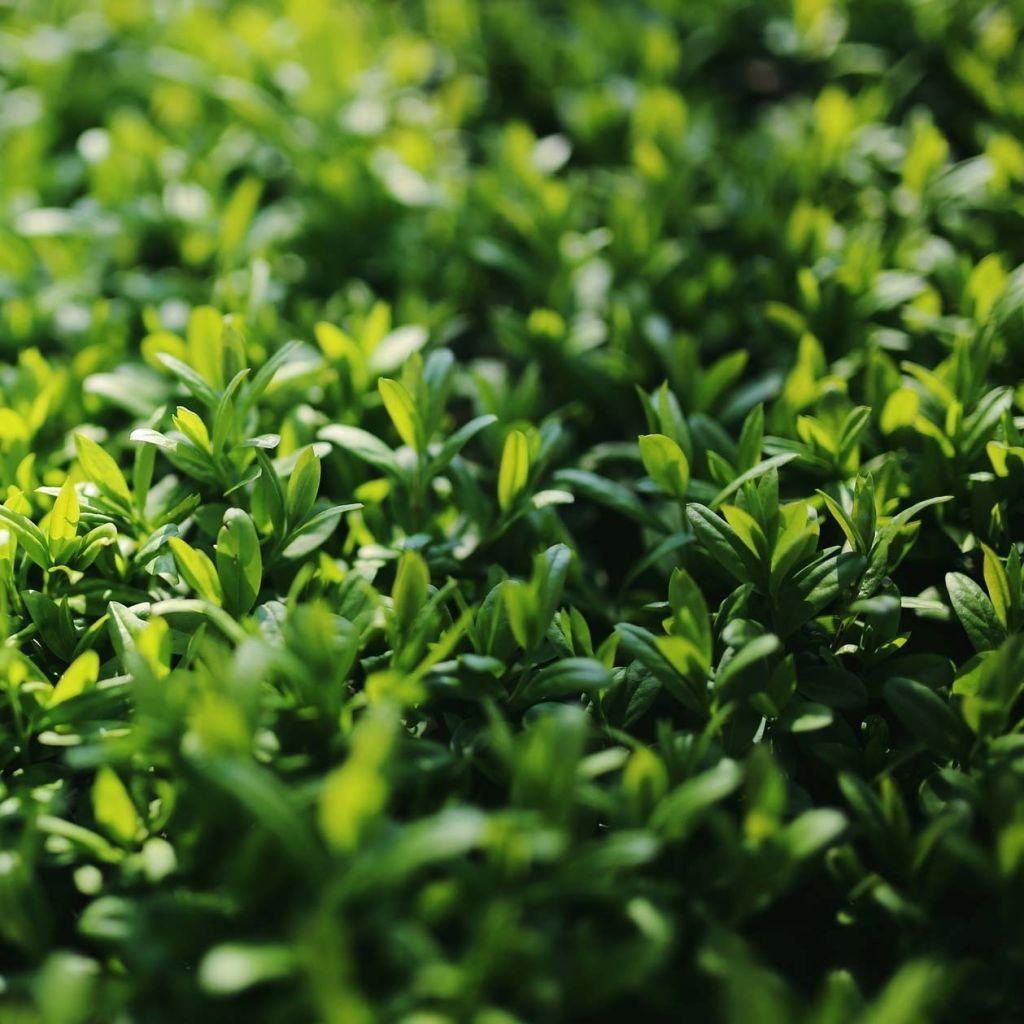

Ligustrum japonicum Green Century - Japanese Privet
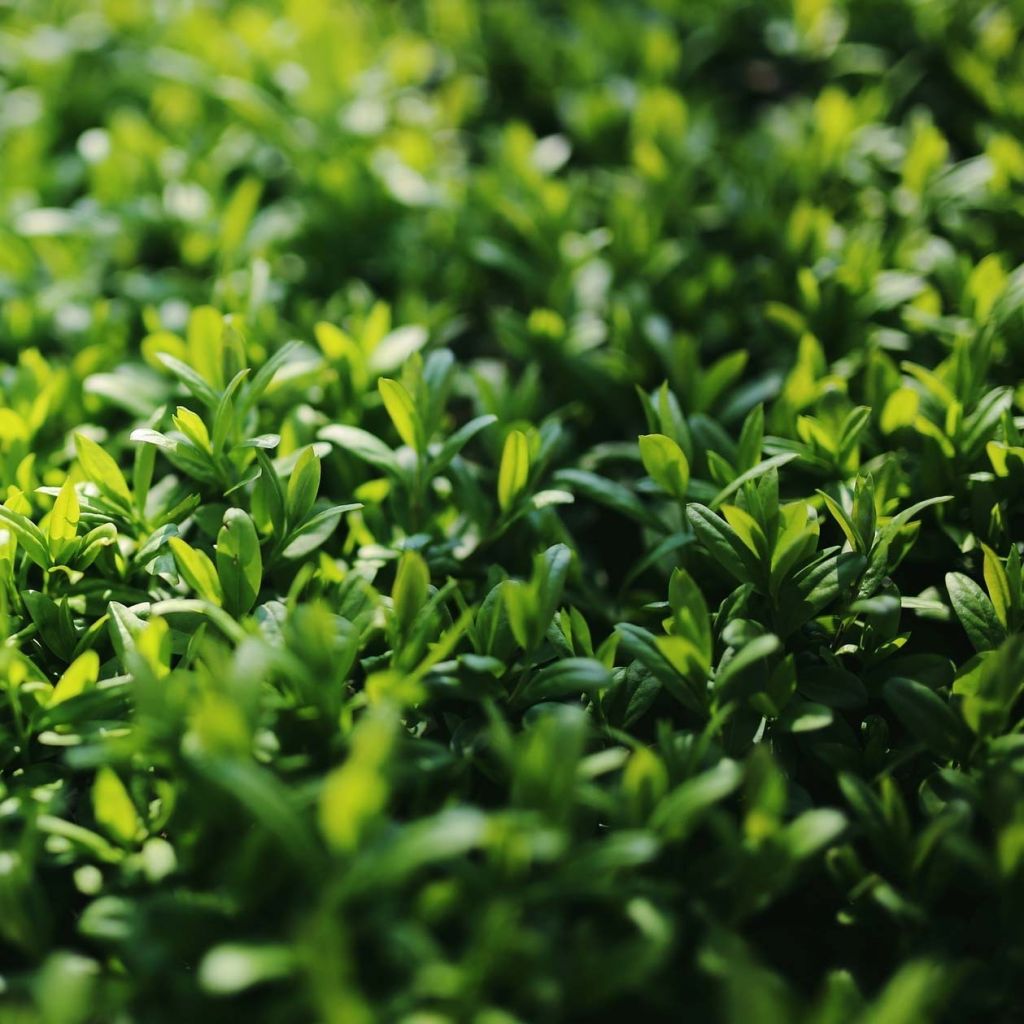

Ligustrum japonicum Green Century - Japanese Privet
Ligustrum japonicum Green Century - Japanese Privet
Ligustrum japonicum Green Century
Japanese Privet
This item cannot be shipped to the selected country
Delivery charge from €5.90
Delivery to Corse prohibited
More information
Schedule delivery date,
and select date in basket
This plant carries a 24 months recovery warranty
More information
We guarantee the quality of our plants for a full growing cycle, and will replace at our expense any plant that fails to recover under normal climatic and planting conditions.
From €5.90 for pickup delivery and €6.90 for home delivery
Express home delivery from €8.90.
Delivery to Corse prohibited: UE law prohibits the import of this plant from mainland France to Corse as part of the fight against Xylella fastidiosa. Please accept our sincere apologies.
More information
Does this plant fit my garden?
Set up your Plantfit profile →
Description
The Ligustrum japonicum 'Green Century' is another variety of elegant Japanese privet, well adapted to small spaces, which usually requires no pruning. This bush is interesting for its moderate development, its compact and upright habit, and its excellent hardiness. It's also adorned with pretty evergreen leaves that are particularly vibrant in colour. To all these qualities is added a fragrant cream-white flowering that attracts many foraging insects and animates the garden in summer. It grows as easily as the boxwood to which it can easily substitute, in all its uses.
The Ligustrum japonicum is an evergreen bush of the oleaceae family native to Korea and Japan. 'Green Century' is a Belgian horticultural variety that stands out for its cold resistance, its smaller development, and its more upright habit. The plant tends to develop almost vertical branches that limit its spread. It will reach about 1.75m (5 ft 8 in) in height and 1.50m (4 ft 11 in) in width after several years. Its branches bear leaves arranged in an opposite manner throughout the year. They are entire, ovate with a pointed tip, shiny and dark green when mature, and measure 4 to 10 cm (1.6 to 3.9 in) long. In the spring, the young leaves are a lighter green, contrasting nicely with the older foliage. Flowering occurs in July-August. It takes the form of conical clusters of 10 to 12cm (3.9 to 4.7 in) long at the ends of the branches. Each inflorescence contains dozens of small, creamy white, honey-scented flowers. They give way to berries of a blackish-purple colour, provided the bush is not pruned. All parts of the privet are toxic if ingested.
The Ligustrum japonicum 'Green Century', discreet but elegant and decorative all year round, can be used in many ways: as a hedge, standalone, in a shrub collection or even in a pot. Its moderate growth spares the gardener any pruning, even when it is installed in a boundary hedge. Withstanding pruning well, it lends itself wonderfully to the art of topiary, and can perfectly replace the boxwood. Also pair it with other easy-to-live-with bushes, for example evergreen viburnums, Abelias, Aucuba, or Berberis.
Report an error about the product description
Ligustrum japonicum Green Century - Japanese Privet in pictures


Plant habit
Flowering
Foliage
Botanical data
Ligustrum
japonicum
Green Century
Oleaceae
Japanese Privet
Cultivar or hybrid
Other Ligustrum - Privet
Planting and care
The Ligustrum japonicum 'Green Century' is planted in spring or autumn with a spacing of 80cm (31.5 in) for hedges. Dig a hole twice and a half the pot size, loosen the bottom and place a large handful of horticultural compost or mix slow-release fertilizer with loose soil. Water well, especially in the first summers, mulch the soil to keep it fresh and halve the branches to provoke the start of new shoots. Then each year, prune half the new shoots to properly ramify your hedge. This bush is not very demanding in terms of soil, it will even adapt in poor and chalky soil if cared for. Once well established, it completely does without watering in summer in the vast majority of contexts. Privets are quite resistant to parasitic pests and diseases. However, they can be affected by weevil larvae or caterpillars.
Planting period
Intended location
Care
This item has not been reviewed yet - be the first to leave a review about it.
Evergreen shrubs
Haven't found what you were looking for?
Hardiness is the lowest winter temperature a plant can endure without suffering serious damage or even dying. However, hardiness is affected by location (a sheltered area, such as a patio), protection (winter cover) and soil type (hardiness is improved by well-drained soil).

Photo Sharing Terms & Conditions
In order to encourage gardeners to interact and share their experiences, Promesse de fleurs offers various media enabling content to be uploaded onto its Site - in particular via the ‘Photo sharing’ module.
The User agrees to refrain from:
- Posting any content that is illegal, prejudicial, insulting, racist, inciteful to hatred, revisionist, contrary to public decency, that infringes on privacy or on the privacy rights of third parties, in particular the publicity rights of persons and goods, intellectual property rights, or the right to privacy.
- Submitting content on behalf of a third party;
- Impersonate the identity of a third party and/or publish any personal information about a third party;
In general, the User undertakes to refrain from any unethical behaviour.
All Content (in particular text, comments, files, images, photos, videos, creative works, etc.), which may be subject to property or intellectual property rights, image or other private rights, shall remain the property of the User, subject to the limited rights granted by the terms of the licence granted by Promesse de fleurs as stated below. Users are at liberty to publish or not to publish such Content on the Site, notably via the ‘Photo Sharing’ facility, and accept that this Content shall be made public and freely accessible, notably on the Internet.
Users further acknowledge, undertake to have ,and guarantee that they hold all necessary rights and permissions to publish such material on the Site, in particular with regard to the legislation in force pertaining to any privacy, property, intellectual property, image, or contractual rights, or rights of any other nature. By publishing such Content on the Site, Users acknowledge accepting full liability as publishers of the Content within the meaning of the law, and grant Promesse de fleurs, free of charge, an inclusive, worldwide licence for the said Content for the entire duration of its publication, including all reproduction, representation, up/downloading, displaying, performing, transmission, and storage rights.
Users also grant permission for their name to be linked to the Content and accept that this link may not always be made available.
By engaging in posting material, Users consent to their Content becoming automatically accessible on the Internet, in particular on other sites and/or blogs and/or web pages of the Promesse de fleurs site, including in particular social pages and the Promesse de fleurs catalogue.
Users may secure the removal of entrusted content free of charge by issuing a simple request via our contact form.
The flowering period indicated on our website applies to countries and regions located in USDA zone 8 (France, the United Kingdom, Ireland, the Netherlands, etc.)
It will vary according to where you live:
- In zones 9 to 10 (Italy, Spain, Greece, etc.), flowering will occur about 2 to 4 weeks earlier.
- In zones 6 to 7 (Germany, Poland, Slovenia, and lower mountainous regions), flowering will be delayed by 2 to 3 weeks.
- In zone 5 (Central Europe, Scandinavia), blooming will be delayed by 3 to 5 weeks.
In temperate climates, pruning of spring-flowering shrubs (forsythia, spireas, etc.) should be done just after flowering.
Pruning of summer-flowering shrubs (Indian Lilac, Perovskia, etc.) can be done in winter or spring.
In cold regions as well as with frost-sensitive plants, avoid pruning too early when severe frosts may still occur.
The planting period indicated on our website applies to countries and regions located in USDA zone 8 (France, United Kingdom, Ireland, Netherlands).
It will vary according to where you live:
- In Mediterranean zones (Marseille, Madrid, Milan, etc.), autumn and winter are the best planting periods.
- In continental zones (Strasbourg, Munich, Vienna, etc.), delay planting by 2 to 3 weeks in spring and bring it forward by 2 to 4 weeks in autumn.
- In mountainous regions (the Alps, Pyrenees, Carpathians, etc.), it is best to plant in late spring (May-June) or late summer (August-September).
The harvesting period indicated on our website applies to countries and regions in USDA zone 8 (France, England, Ireland, the Netherlands).
In colder areas (Scandinavia, Poland, Austria...) fruit and vegetable harvests are likely to be delayed by 3-4 weeks.
In warmer areas (Italy, Spain, Greece, etc.), harvesting will probably take place earlier, depending on weather conditions.
The sowing periods indicated on our website apply to countries and regions within USDA Zone 8 (France, UK, Ireland, Netherlands).
In colder areas (Scandinavia, Poland, Austria...), delay any outdoor sowing by 3-4 weeks, or sow under glass.
In warmer climes (Italy, Spain, Greece, etc.), bring outdoor sowing forward by a few weeks.


































